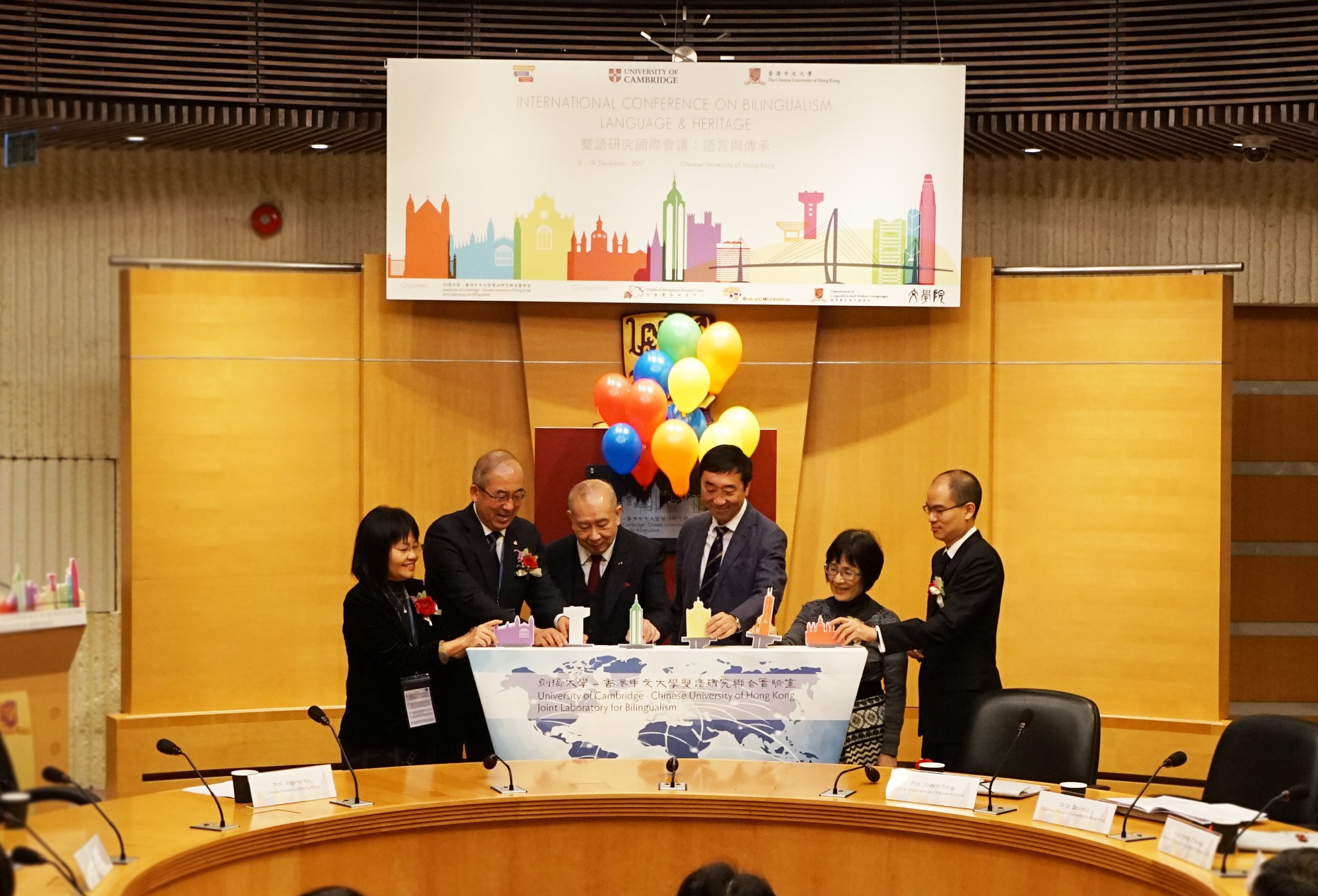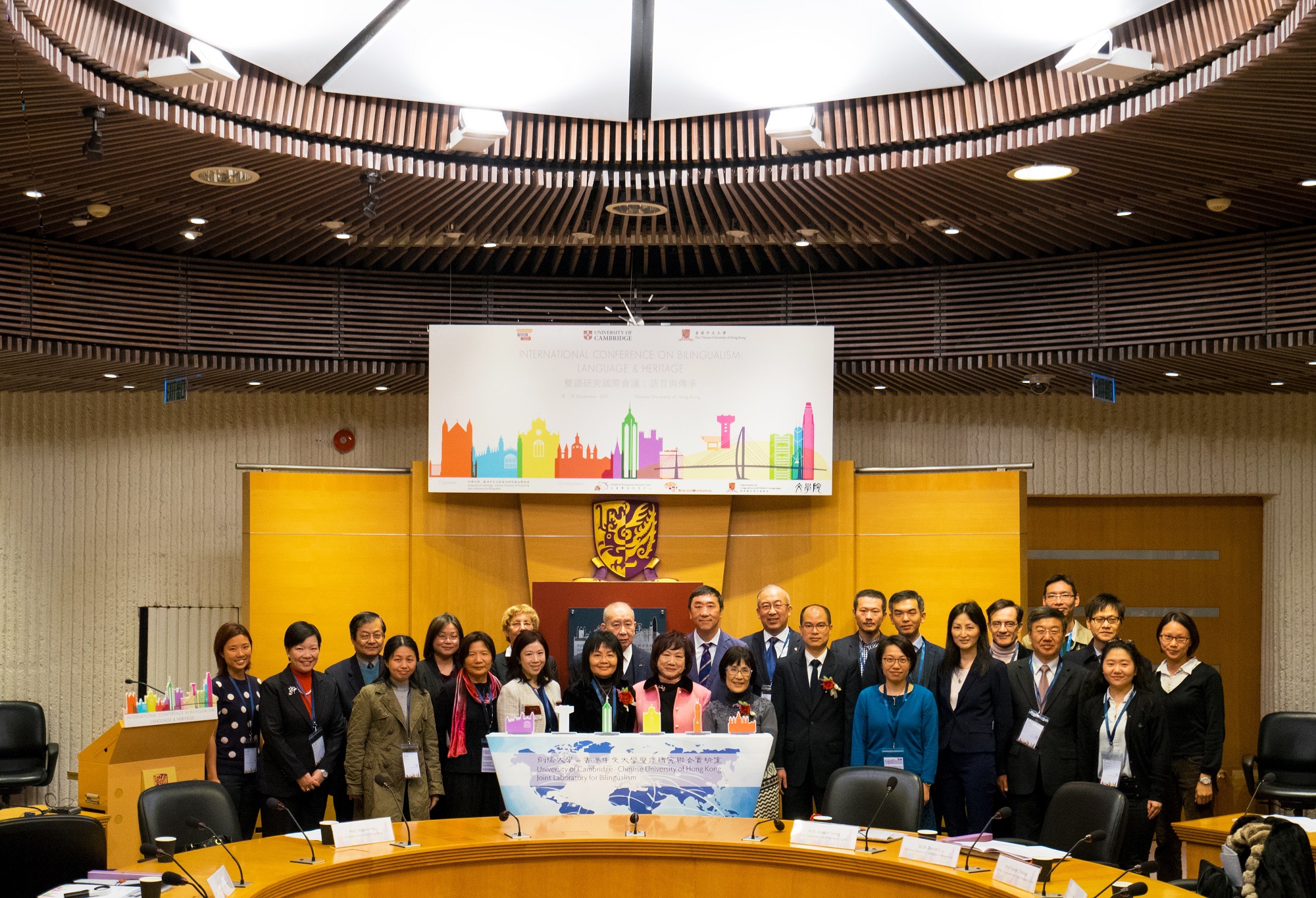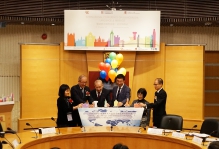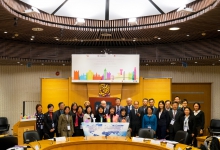CUHK
News Centre
Establishment of The University of Cambridge – CUHK Joint Laboratory for Bilingualism at the Inaugural International Conference on Bilingualism: Language and Heritage
The University of Cambridge – Chinese University of Hong Kong Joint Laboratory for Bilingualism (JLB) was officially launched at the inaugural International Conference on Bilingualism: Language and Heritage in December 2017. The conference provided an international forum to promote and disseminate research in bilingualism from infancy through early childhood and adulthood, with a focus on the acquisition of Chinese in linguistically diverse bilingual and multilingual contexts.
Officiating at the ceremony were: Prof. Joseph Sung, Vice-Chancellor and President of The Chinese University of Hong Kong (CUHK), Sir David K. P. Li, Chairman of the Friends of Cambridge in Hong Kong, Prof. Fanny Cheung, Pro-Vice Chancellor and Vice President, Prof. Patrick Wong, Director of the Brian and Mind Institute, Prof. Boping Yuan and Prof. Virginia Yip, Co-Directors of JLB. A number of distinguished scholars from the University of Cambridge, Harvard University, the University of Southern California, the United Nations, Peking University, CUHK, and the international and local community gave keynote and invited speeches. More than 200 participants specialising in linguistics, psychology and education as well as members of the public attended the conference.
The theme of the conference was bilingualism through the lens of the intricate relationship of language and heritage, in particular the acquisition of language as a way to preserve and maintain a speaker’s and community’s heritage and the challenges posed to language learners, researchers and educators. The conference also featured two panels that were of interest to a wide audience from a diversity of disciplines, as well as the general public. The panels brought together researchers and practitioners from different countries and regions including Australia, UK, USA, mainland China, Hong Kong and Singapore to give an international perspective on issues involved in nurturing bilingualism in early childhood and in heritage bilingualism, in different contexts.
Panel I: Bilingualism in early childhood education: research and practice
This panel focused on issues in early childhood bilingualism and education, with the guiding assumption that research and practice can mutually inform each other. The panellists highlighted the importance of infant and child bilingualism research using methods from psycholinguistics and cognitive neuroscience and explored implications for developing programmes and for practitioners in the classroom. The discussion was of interest to educators and language professionals concerned with bilingualism research and best practices in the local and international communities.
Panel II: Heritage bilingualism, education and society
This panel focused on Chinese as a heritage language in overseas communities where English is the language of the community. As the learning and teaching of heritage Chinese has grown rapidly in recent years across many countries, the speakers addressed issues in developing education programmes for school age children and adult learners in different learning contexts. A key issue discussed was how knowledge of Chinese as a heritage language can be nurtured in English-dominant environments and how heritage bilingualism is vital to preserving the heritage and identity of the speaker.
(from left) Prof. Virginia Yip, Prof. Boping Yuan, Co-Directors of The University of Cambridge - Chinese University of Hong Kong Joint Laboratory for Bilingualism, Sir David K. P. Li, Chairman of the Friends of Cambridge in Hong Kong, Prof. Joseph Sung, Vice-Chancellor and President, CUHK, Prof. Fanny Cheung, Pro-Vice Chancellor and Vice President and Prof. Patrick Wong, Director of Brain and Mind Institute, officiated at the opening ceremony of the International Conference on Bilingualism: Language and Heritage





